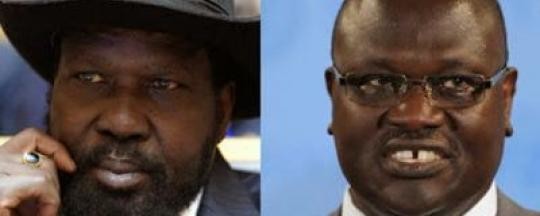The United Nations mission in South Sudan and the peace monitoring body RJMEC raised alarms Thursday over rising violence and a lack of progress in implementing the country’s fragile peace agreement, warning that trust between warring factions is eroding.
Guang Cong, the U.N. deputy special representative for South Sudan, told the African Union Peace and Security Council that recent clashes have undone hard-won gains in the peace process.
“Since our last briefing to the council, we have witnessed the continued erosion of the hard-won gains previously made in the peace process, including the trust and confidence built among the parties,” Cong said, referencing the Revitalized Agreement on the Resolution of the Conflict in South Sudan (R-ARCSS).
Despite calls for a cease-fire, Cong said fighting has continued, displacing more than 130,000 people since March — including tens of thousands who fled to Ethiopia. The violence has also disrupted humanitarian aid in conflict-hit regions.
He blamed “a pattern of violations and unilateralism” for undermining South Sudan’s unity government, which was formed to enact the peace deal.
Cong urged the Security Council to push for an immediate cease-fire, the release of detained opposition leaders and full compliance with the peace agreement. He also called for investigations into cease-fire violations.
The U.N., he said, remains committed to working with the African Union and regional bloc IGAD to revive stalled peace efforts.
Separately, the Reconstituted Joint Monitoring and Evaluation Commission (RJMEC) warned the African Union Peace and Security Council that South Sudan’s political deadlock risks further undermining national cohesion and the fragile peace agreement.
Addressing the 1,283rd AUPSC session virtually, RJMEC Chairperson Maj. Gen. George Owinow said the country’s situation continues to deteriorate, with the permanent cease-fire “gravely undermined” and the 2018 peace deal endangered.
“If left unresolved, this could further erode trust, national cohesion and reconciliation, reversing gains made in the past six years,” Owinow said.
He stressed the urgent need to resolve the impasse to allow for constitution drafting, security reforms and timely elections slated for December 2026.
Tensions have been rising since February, fueled by a breakdown in working relations between President Salva Kiir and his first vice president, Riek Machar, and a series of unilateral moves.
The crisis deepened between Kiir and Machar — key partners to the 2018 peace agreement — when security forces detained Machar on March 26 in Juba. His party called the arrest a violation of the peace deal that ended a five-year civil war, which killed nearly 400,000 people.
The arrest drew widespread condemnation, including from the African Union’s Peace and Security Council, which demanded Machar’s “immediate and unconditional release” and urged guarantees for his safety and health.




